|
The origins of The Violet Hour go all the way back to a literature class I took in college called "Doomed Love in the Western World." In recent months, it's been fun to revisit the literary tradition of bad marriage. My essay on D.H. Lawrence, F. Scott Fitzgerald, Christina Stead, and the modern marriage revolution appeared last Friday in the Wall Street Journal's Speakeasy.
1 Comment
 At the violet hour, when the eyes and back Turn upward from the desk, when the human engine waits Like a taxi throbbing waiting... T.S. Eliot Well, wait no longer, because The Violet Hour is officially here! For the latest endorsement, check out page 80 of the August issue of O, The Oprah Magazine. Pretty surreal to see my novel recommended as one of Ten Titles to Pick Up Now: "A bittersweet tale of breakup and forgiveness, this debut novel begins at the end of a marriage and journeys back through time to explore why the relationship slowly frayed.” Five days from publication and reviews are starting to turn up. I want to be a Jill Lepore who doesn't read my own reviews, but this is all still so new and strange that I just can't help myself.
Today in the Bookmarked column at Philly.com, Nathaniel Popkin offers a generous, considered reading of The Violet Hour's social and cultural themes. http://www.philly.com/philly/entertainment/art-attack/Bookmarked_The_Violet_Hour.html And over at Colorado Review, Derek Askey recommends The Violet Hour as an affecting post-mortem on a marriage. http://coloradoreview.colostate.edu/reviews/the-violet-hour/ I'm heading to London tonight, so I thought I'd share the gorgeous cover that the good people at Viking/Penguin have designed for the UK edition of The Violet Hour. It's so different from the all-text US cover, but, I think, equally haunting. If you look closely (pretend for a moment that you are the book's obsessive author), you'll see that the font on my name is the same for both editions. A nice trans-Atlantic link.
Well, this is exciting. July dates are confirmed for The Violet Hour book tour!
Thursday, July 18: Brooklyn, NY, BookCourt, 7pm Sunday, July 21: Washington, D.C., Politics & Prose, 1pm Tuesday, July 23: Madison, CT, R.J. Julia, 7pm Wednesday, July 24: Cambridge, MA, Harvard Book Store, 7pm Monday, July 29: Newton, MA, Newtonville Books, 7pm Stay tuned for updates... 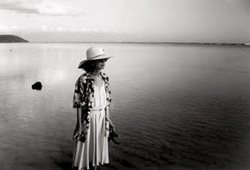 Or rather, your Didion for today. Here is her fictional self in the 1984 novel, Democracy, about a crisis in a powerful political family. There is a murder, an affair, and all the jaded decadence of the 1970s. This being vintage Didion, there's also a great deal of worrying about form: Aerialists know that to look down is to fall. Writers know it too. Look down and that prolonged spell of suspended judgment in which a novel is written snaps, and recovery requires that we practice magic. We keep our attention fixed on the wire, plan long walks, solitary evenings, measured drinks at sundown and careful meals at careful hours. We avoid addressing the thing directly during the less propitious times of day. We straighten our offices, arrange and rearrange certain objects, talismans, props. But Democracy is not just a novel about writing a novel. It's also about Inez Christian Victor, a tired Hawaii-born wife of a liberal politician at the end of the Vietnam War. The kind of woman whose entire existence can be summarized in an arch yet plaintive line from Didion: "In retrospect she seemed to have been most happy in borrowed houses, and at lunch." It's also a novel about writing a novel in Hawaii, something we should all be lucky enough to do. They had met in Honolulu during the winter of 1952. I can define exactly how winter comes to Honolulu: a kona wind comes up and the season changes. Kona means leeward, and this particular wind comes off the leeward side of the island, muddying the reef, littering the beaches with orange peels and prophylactics and bits of Styrofoam cups, knocking blossoms from the plumeria trees and dry fronds from the palms. The sea goes milky. Termites swarm on wooden roofs. The temperature has changed only slightly, but only tourists swim. At the edge of the known world there is only water, water as a definite presence, water as the end to which even the island will eventually come, and a certain restlessness prevails. Mad Men sent Don and Megan to the Royal Hawaiian for the season 6 premiere yesterday. And Don, like Didion, came away from his winter holiday thinking that Hawaii was all about death. "Heaven's a little morbid," he tells the Sheraton guys, in one of the few scenes that wasn't completely boring. "How do you get to heaven? Something terrible has to happen." If only he'd run into Didion, they could've stood together with their cigarettes, enigmatically watching tourists swim.  My essay on Lynne Sharon Schwartz's lovely new novel Two-Part Inventions (Counterpoint) is online now at the Paris Review Daily. Also discussed: the Bennington MFA, artistic mentorship, and the experience of reading a teacher's books. 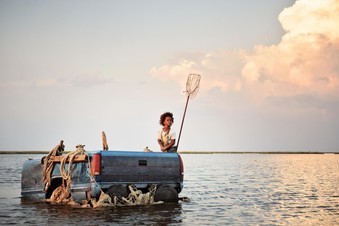 In the run-up to Oscar Sunday, the good people of The Iron List (that's, um, my husband Matt Karp and me) have wasted a good portion of the week evaluating the films of 2012, because this is something you do for a billion years or not at all. If you have ever wondered what we think of Tom Hardy's turbo-neck, Charlize Theron's push-up form, and Channing Tatum's helicopter dance, not to mention the comparative violence of orca whales, American empire, and dying slowly at home, well, now you know. Scroll back through all the posts for the opinions of our valued friends and colleagues as we discuss the additional themes of high school reunions, bromance, public urination, and children in peril. Sometimes garbage flew in our face, but on the whole, we had a really good time. A visit to Commonwealth Books in Boston yesterday yielded four used paperback novels: George Eliot's Felix Holt: The Radical, Joseph Conrad's Nostromo, Frank Norris's The Octopus, and Natalia Ginzburg's The City and the House. To pass time on the T ride home, we read the first sentence of each, not expecting them to have much in common. 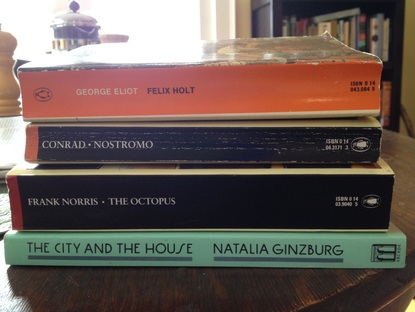 "Five-and-thirty years ago the glory had not yet departed from the old coach-roads; the great roadside inns were still brilliant with well-polished tankers, the smiling glances of pretty barmaids, and the repartees of jocose ostlers; the mail still announced itself by the merry notes of the horn; the hedge-cutter or the rick-thatcher might still know the exact hour by the unfailing yet otherwise meteoric apparition of the peagreen Tally-ho or the yellow Independent; and elderly gentlemen in pony-chaises, quartering nervously to make way for the rolling swinging swiftness, had not ceased to remark that times were finally changed since they used to see the pack-horses and hear the tinkling of their bells on their very highway." George Eliot, Felix Holt "In the time of Spanish rule, and for many years afterwards, the town of Sulaco--the luxurious beauty of the orange gardens bears witness to its antiquity--had never been commercially anything more important than a coasting port with a fairly large local trade in ox-hides and indigo." Joseph Conrad, Nostromo "Just after passing Caraher's saloon, on the county road that ran south from Bonneville, and that divided the Broderson ranch from that of Los Muertos, Presley was suddenly aware of the faint and prolonged blowing of a steam whistle that he knew must come from the railroad shops near the depot at Bonneville." Frank Norris, The Octopus "My dear Ferruccio, I booked my ticket this morning." Natalia Ginzburg, The City and the House Of course, each one was its own unique sentence -- just compare the lengthy Eliotness of Eliot with the epistolary brevity of Ginzburg -- and yet, in a way, they were all the same. Eliot and Conrad make explicit acknowledgment of changing times; Eliot, Conrad, and Norris offer a flavor of commerce and emerging technologies; and in all four, there a presumption, if not an outright declaration, of travel. Eliot has the coach-road, Conrad the port, Norris the county road and railroad, and Ginzburg the ticket. It's a reminder, however superficial (because after all, this was a subway game, and I haven't yet read any further), that fiction thrives on movement: of language, of action, of people. It's an old, facile dichotomy that there are two plots in fiction (a hero goes on a journey, and a stranger comes to town) which is a little too cute. And yet, when someone or something is going somewhere -- when a president heads to the Capitol to embark on another four years -- isn't it true that we can't help but wonder why, or how it will all turn out? When Courtney Elizabeth Mauk invites you to participate in a literary blog chain called The Next Big Thing, you do it. Even if it means answering a bunch of scary questions about the thing you’ve been working on all these years… Courtney is the author of Spark, a fabulous novel about arson and siblinghood, which was published by Engine Books last fall. She’s also basically the nicest person you’ll ever meet. (On Twitter @courtneymauk.) Thanks for the invite, Courtney! Here goes nothing… 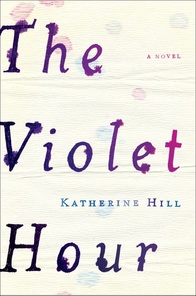 What is your working title of your book (or story)? The Violet Hour What is the one-sentence synopsis of your book? One summer afternoon in San Francisco, a rheumatologist and a sculptor out for a sail with their Harvard-bound daughter plunge into a fight that will change the course of all their lives. What genre does your book fall under? novel, literary fiction Where did the idea come from for the book? I’ve always been interested in intimacy—how fragile it can be and how irrationally strong. But looking back, there was a college seminar I took called “Doomed Love in the Western World” that was probably pretty important. We read about a dozen great novels, including Madame Bovary, Anna Karenina, and The Satanic Verses, and for a long time after that, everything I read seemed to extend the conversation of that class. Whatever else was going on the in world, love just kept finding creative new ways to die. For some reason, probably because I’m a hopeless romantic, that idea really excited me. Which actors would you choose to play your characters in a movie rendition? The most attractive ones, of course. Honestly, I think about celebrities far too often to answer this question without surrendering all dignity. But if pressed, maybe Julianne Moore, Emma Stone and George Clooney. Or three fabulous actors no one has ever heard of! Yes, that. How long did it take you to write the first draft of your manuscript? The first draft took me about four years. Then I spent the next three years revising. Who or what inspired you to write this book? Virginia Woolf. Jonathan Franzen. Oh no, if I keep going this will be like roll call at graduation. Really, just about everyone I’ve ever read. Nothing inspires me more than an ambitious writer tackling an ambitious subject like love, loss, time—or ambition. That, and fear. I’d told so many people I was working on this novel that I think I felt I just had to finish it. What else about your book might pique the reader's interest? A family-run funeral home in Bethesda, Maryland, plays an important role in the action. Will your book be self-published or represented by an agency? Thanks to my hero Jim Rutman at Sterling Lord Literistic, The Violet Hour will be published in July 2013 by Scribner in the US and Canada, Viking/Penguin in the UK, and Ullstein in Germany. I know. I can’t believe it either! Up next week are three writers I really, really like. As people and as writers. Basically, I did this just to get them all to talk, because I'm dying to hear what they're working on. Laurie Ann Cedilnik. Fiction Editor at Third Coast. Assistant Fiction Editor at Barrelhouse. Queens girl for life. On Twitter @cedilnik. Tom McAllister. Author of Bury Me in My Jersey: A Memoir of My Father, Football, and Philly. Nonfiction Editor at Barrelhouse. Co-host of Book Fight podcast. On Twitter @t_mcallister. Ross Simonini. Interviews Editor at The Believer. Member of NewVillager. On Twitter @RoosShamanana. Check back next week for their answers. |
Aboutauthor of The Violet Hour, reader, prodigious eater of ice cream Archives
June 2014
Categories
All
|
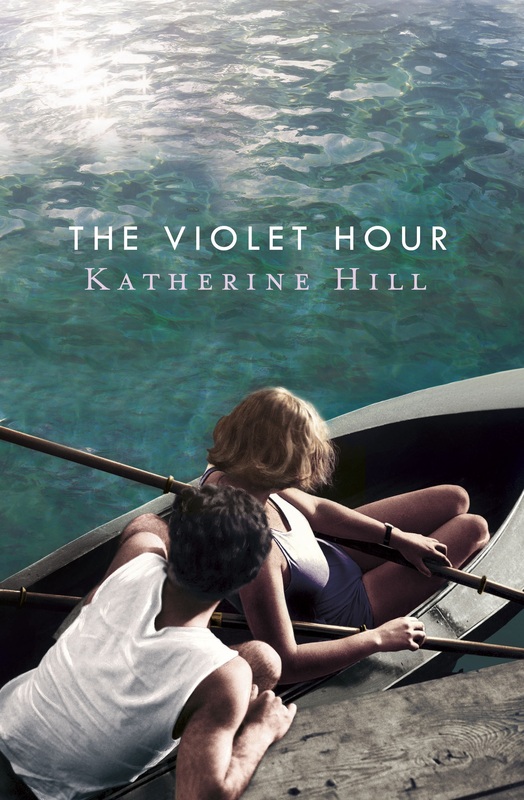
 RSS Feed
RSS Feed